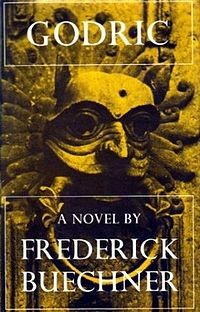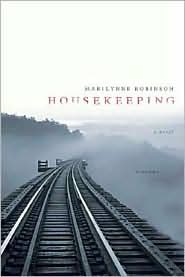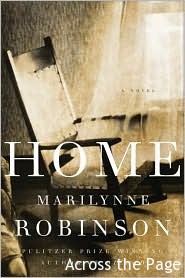Godric
 I’m not sure how it is that Frederick Buechner manages to present the semi-fictionalized ruminations of a medieval Catholic saint with such relevance and readability, but he does. He recreates with great lyricism and economy Godric’s world, a place at once more earthy and more preoccupied with holiness than we can easily imagine.
I’m not sure how it is that Frederick Buechner manages to present the semi-fictionalized ruminations of a medieval Catholic saint with such relevance and readability, but he does. He recreates with great lyricism and economy Godric’s world, a place at once more earthy and more preoccupied with holiness than we can easily imagine.
Godric’s perspective doesn’t reflect the split between soul and body that has come to characterize our thinking, and every aspect of his experience is infused with spiritual meaning. The appetites of the body, greed, deception, spiritual pilgrimage and asceticism, even incest — Godric is unsparing as he relates his life to his biographer, and all of these struggles become avenues toward grace.
It may sound strange, but the more wretched the experiences Godric has and observes around him — you can almost smell the sweat and blood of his world — the more meaningful grace becomes. Godric’s life follows a trajectory from never-quite-blissful sinfulness to repentance, and an increasing preoccupation with holiness. I love Buechner’s description of Godric’s baptism:
I stood and watched the Jordan flow a while, not rough like Wear but flat and still. Then waded in.
Oh Lord, the coolness of the river’s touch! The way it mirrored back the clouds as if I bathed in sky. I waded out to where the water reached my neck, my beard outspread, my garments floating free. I let my hands bob up like corks. At sixteen stone or more, I felt I had, myself, no weight at all. The soul, set free from flesh at last, must know such peace.
And oh, the heart, the heart! In Jordan to my chin, I knew not if I laughed or wept but only that the untold weight of sin upon my heart was gone.
Despite becoming a hermit and growing increasingly preoccupied with perfection, Godric never entirely conquers his sinfulness. But in his clear-eyed estimate of himself, and his refusal to allow his biographer to think of him as saintly, we see the humility of the person who “walks in the light” and has no need to pretend. He is honest, about himself and about the mysteries and sorrows of human experience.
The excerpt just given also shows the poetry of Buechner’s writing. Incredible though it seems, he maintains that iambic rhythm throughout the book. To do that at all is remarkable, much less to do it without wasting a metric foot of the story’s rich thought content and stately pacing. No wonder this tale won a Pulitzer. I picked it up after reading Philip Yancey’s recommendation in Soul Survivor, and it has been my first introduction to Buechner’s fiction. I’ve read Buechner’s non-fiction before, but here I caught a glimpse of artistic genius added to the honesty and freshness and depth of spiritual insight I’ve enjoyed before. I will certainly be exploring more of his fiction in the future.




4 Comments
hopeinbrazil
I struggled to get into this book. Thanks for your incisive review that prods me to give it another try.
Janet
Hope, this was my second try reading the novel too! In my case it was Yancey’s writings about Buechner that made me try again.
I did read one other novel by Buechner: The Storm. Other than that, it’s all nonfiction: The Alphabet of Grace, The Sacred Journey, and Listening to Your Life.
Ruth
I read his book about Brendan. I think it’s called Brendan? (Yes, just checked on Amazon.) It sounds like this one is quite similar. I need to try more of his books. I read The Alphabet of Grace, and several years ago I read loads and loads and loads of the Book of Bebb, but could never quite get into it and finally gave up.
hopeinbrazil
Hi Janet, Thanks for stopping by and leaving a comment about Adam Bede. I’d read it in college and luckily forgot almost all of it. It is best read without knowledge of the upcoming plot twists.